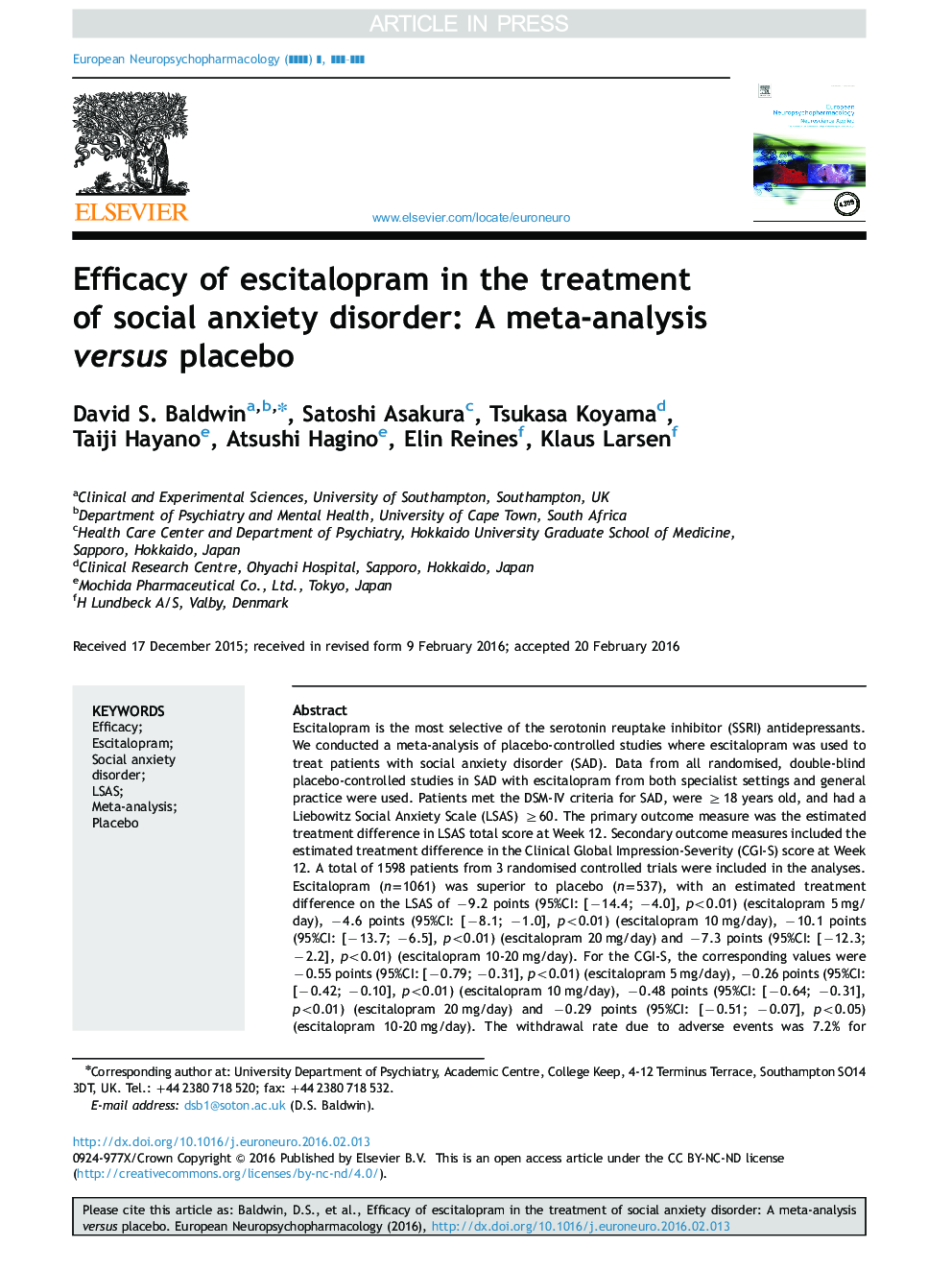| Article ID | Journal | Published Year | Pages | File Type |
|---|---|---|---|---|
| 10298749 | European Neuropsychopharmacology | 2016 | 8 Pages |
Abstract
Escitalopram is the most selective of the serotonin reuptake inhibitor (SSRI) antidepressants. We conducted a meta-analysis of placebo-controlled studies where escitalopram was used to treat patients with social anxiety disorder (SAD). Data from all randomised, double-blind placebo-controlled studies in SAD with escitalopram from both specialist settings and general practice were used. Patients met the DSM-IV criteria for SAD, were â¥18 years old, and had a Liebowitz Social Anxiety Scale (LSAS) â¥60. The primary outcome measure was the estimated treatment difference in LSAS total score at Week 12. Secondary outcome measures included the estimated treatment difference in the Clinical Global Impression-Severity (CGI-S) score at Week 12. A total of 1598 patients from 3 randomised controlled trials were included in the analyses. Escitalopram (n=1061) was superior to placebo (n=537), with an estimated treatment difference on the LSAS of â9.2 points (95%CI: [â14.4; â4.0], p<0.01) (escitalopram 5 mg/day), â4.6 points (95%CI: [â8.1; â1.0], p<0.01) (escitalopram 10 mg/day), â10.1 points (95%CI: [â13.7; â6.5], p<0.01) (escitalopram 20 mg/day) and â7.3 points (95%CI: [â12.3; â2.2], p<0.01) (escitalopram 10-20 mg/day). For the CGI-S, the corresponding values were â0.55 points (95%CI: [â0.79; â0.31], p<0.01) (escitalopram 5 mg/day), â0.26 points (95%CI: [â0.42; â0.10], p<0.01) (escitalopram 10 mg/day), â0.48 points (95%CI: [â0.64; â0.31], p<0.01) (escitalopram 20 mg/day) and â0.29 points (95%CI: [â0.51; â0.07], p<0.05) (escitalopram 10-20 mg/day). The withdrawal rate due to adverse events was 7.2% for escitalopram, compared with 4.3% for placebo (p<0.05). In this meta-analysis, all doses of escitalopram showed significant superiority in efficacy versus placebo in the treatment of patients with SAD.
Related Topics
Life Sciences
Neuroscience
Biological Psychiatry
Authors
David S. Baldwin, Satoshi Asakura, Tsukasa Koyama, Taiji Hayano, Atsushi Hagino, Elin Reines, Klaus Larsen,
